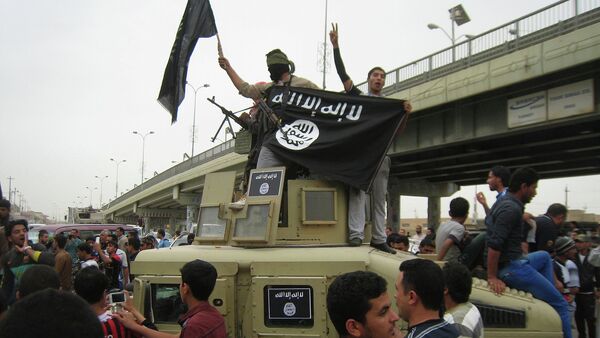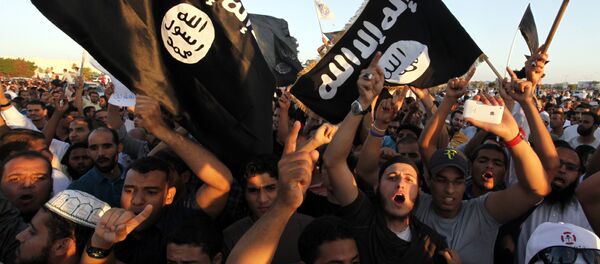Sabit Muhammed, a military analyst and retired Syrian general, recalled that the ideological roots of the radical jihadists are based in recent history. "Daesh is one of dozens of similar organizations –an outgrowth of al-Qaeda in Afghanistan. A part of its fighters are well-trained, experienced soldiers, who participated in military operations in both Afghanistan and Iraq. Their numbers range from 150 to 200 thousand men."
"The exact figures," Muhammed noted, "are very difficult to determine, because the organization regularly receives new members, or sees small groups breaking off from it."
Daesh's main source of funding, the expert recalled, remains the illegal sale of oil and antiquities, with Gulf States supplying the terrorist group with additional funds and weaponry. "The Turkish-Syrian border has remained open since the start of the Syrian crisis. Daesh trades in stolen oil, plundered historical and cultural treasures, rare manuscripts, and human organs via Turkey and Lebanon, with international smuggling gangs serving as mediators."
According to the expert, "the total monthly expenditures of the terror group, when one takes the cost of weapons, ammunition and food into account, are upwards of one billion dollars."
"Daesh's weapons arsenal," Muhammed explained, "includes all kinds of weapons, from anti-tank guns to automatic rifles. Part of the weapons made it into the jihadists' hands as a result of fighting with the Syrian and Iraqi armies. Moreover, in Ukraine and Libya, there is a large black market with literally hundreds of thousands of weapons, purchased and sent to Daesh via Saudi Arabia and Qatar."
"In this way," the military expert noted, "there is a whole range of countries by which Daesh is replenished with weapons, money and recruits. After Syria, these countries…could send surviving Daesh militants to Yemen, Libya, the Sinai Peninsula or North Africa to conduct their proxy wars there."
Daesh's military capabilities, according to the journalist, must not be underestimated. "Daesh finds nourishment in religious dogma…The organization is highly skilled in using modern technologies to put psychological pressure on the masses. It changes its tactics rapidly. Today, mass military strikes are the only way to deal with Daesh; however, this is not enough to completely destroy it. Despite the fact that Daesh emerged as an offshoot of al-Qaeda, its organizational structure differs significantly" from that of its older brother.
This, according to Girbek, means that "conducting a military campaign against an organization like Daesh is very difficult. Here's why: the US, Russia and other countries are conducting airstrikes against Daesh positions in Raqqa; when this occurs, militants abandon their checkpoints, and hide in the city, mixing with the urban population. For example, they could take up 2-3 apartments in 5-6 apartment house; therefore, without a ground operation, Raqqa cannot be freed of militants."
"Moreover," the journalist explained, "Daesh has become a subject of bargaining and manipulation. Fighters [from other jihadist groups] who are unsatisfied with conditions within their groups join Daesh, which offers better material conditions and higher pay. Inside Syria and outside of it, there is a wide group of people who reap substantial benefits from this trade. Therefore, to the question of 'where the jihadists will head tomorrow', it is, at least for now, impossible to provide an exact answer."





